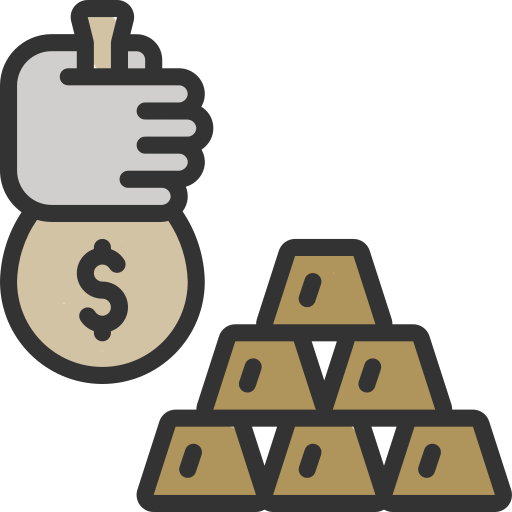
Question: “I’m looking to buy my first investment gold but everywhere I look is selling it for far more than the listed spot price. Why can’t I buy gold at spot?
 Bullion.Directory’s Ask Ally Service
Bullion.Directory’s Ask Ally Service
By Alison Macdonald
Commercial Editor at Bullion.Directory
This week, Cath from Texas is asking why she can’t buy gold at it’s spot price. Like a lot of new investors Cath has seen gold’s listed “spot price” as a buying target and has tried to buy her gold at that “advertised” price.
Unfortunately, for Cath and many other new buyers there follows a quick realization that this is an impossible task because most physical gold sells at between 3-20% over spot, depending on the product.
New investors can even feel conned and get mad at the gold dealer – some deciding to not buy – because they feel buying this asset at a price that can be substantially higher than it’s spot value is a “bad investment.”
And of course, almost as if to rub salt into the wound, this price is displayed prominently on financial news websites, investment platforms and at most online bullion dealers, so is commonly perceived as the “true” price of gold.
This confusion can be compounded farther if the new investor decides to look up the meaning of gold’s “spot price” and find out it’s the current market price at which gold can be bought or sold for immediate delivery.
These retail buyers want immediate delivery, so what gives?
Why is there such a discrepancy between the spot price and the actual cost of buying gold?
The answer lies in a combination of additional costs and market dynamics that influence the final delivered price of physical gold investment products.
From manufacturing and distribution to dealer markups and global economic factors, these elements can and do play a significant role in pushing the purchase price above the spot rate.
Other than two exceptions, (which I’ll cover at the end) the sad reality is you’ll never buy gold at spot.
Understanding Spot Price – Think Coffee!
 To get to the heart of why you can’t buy gold at spot price, we first need to understand what the spot price actually is. In simple terms, gold is a commodity and the spot price is the current commodity market price at which gold can be bought or sold by commodity traders for immediate delivery.
To get to the heart of why you can’t buy gold at spot price, we first need to understand what the spot price actually is. In simple terms, gold is a commodity and the spot price is the current commodity market price at which gold can be bought or sold by commodity traders for immediate delivery.
Think of it as the baseline value of gold, reflecting the most recent transactions in this global commodities market.
When people ask me about gold spot, I’ll typically bring up another popular commodity: coffee.
This too is a physical product that trades on the commodity markets and has a spot price.
As I write this article, coffee is currently trading at a spot price of $1.44/oz – and yet you probably wouldn’t expect to walk into your local specialty coffee grind-house and walk out of the door with some of their finest beans at that price.
In fact you probably couldn’t even buy the cheapest nastiest instant supermarket ‘coffee’ at $1.44/oz.
And your coffee’s value will seem even worse when you realize the coffee spot price is based on unprocessed green beans: beans that are substantially heavier than the dried roasted ones you’ll find in a shop.
Why is this?
Well, coffee needs harvesting and is given an initial processing (removing the bean from its outer fruit) before being gathered together in bulk to be shipped to buyers. These first buyers will further process the coffee before selling to a first layer of wholesalers. This process can involve anywhere from 2 to 10 additional buy-and-sell transactions before it reaches its final retail form.
During its journey, the coffee can be roasted, packaged, shipped, stored, stocked, and shelved. It will incur marketing costs, labor costs, damage and losses, meaning insurance costs, and utility costs. There will be a small profit taken at every single step between the plantation and your cup.
Gold follows a similar path, only with massive security implications and exacting standards that must be adhered to throughout its journey. I’ll get to that shortly
But that’s not all…
How Gold’s Spot Price is Determined
The spot price isn’t ONLY based on raw costs; it’s determined by several other factors:
- Market Demand and Supply: Like any other commodity, the price of gold is influenced by the laws of supply and demand. When more people want to buy gold (high demand) than sell it (low supply), the price goes up. Conversely, if there’s a surplus of sellers over buyers, the price drops.
- Futures Contracts: A significant part of spot price determination comes from the futures market. Futures contracts are agreements to buy or sell gold at a future date at a predetermined price. These contracts are traded on exchanges and heavily influence the spot price based on the collective sentiment of traders about where they believe the price of gold is headed.
- Operational Costs: Dealers incur costs related to running their businesses, including salaries, rent, utilities, and administrative expenses. Markups help cover these overheads.
- Inventory Costs: Dealers must purchase gold upfront to maintain inventory, tying up significant capital. The markup helps compensate for the cost of holding and managing this inventory.
- Risk Management: Fluctuations in gold prices pose risks to dealers. Markups provide a buffer against price volatility, ensuring that dealers can remain profitable even when prices swing unexpectedly.
- Service Provision: Dealers offer various services, such as secure storage, insurance, and customer support. These services add value but also come with costs that need to be covered.
- Counterfeit Gold: Fraudsters sell fake gold bars or coins that look genuine but are made from cheaper metals. In recent years counterfeits have become almost perfect, so this is a major danger.
- Misrepresented Purity: Some sellers might misrepresent the purity of gold, selling 18k gold as 24k, for example, or they may sell real gold bars that have been drilled out and filled with tungsten.
- Hidden Fees: The most common scam in supposedly low-price deals is where advertised prices can exclude hefty fees added at the last minute.
- Bait and Switch: Like the hidden fee scam, the low price is there to attract customers (the bait) but the dealer will then sell a ‘rare’ premium product (the switch) with a massive markup, having convinced the buyer that it’s an incredible investment opportunity.
- Verify Authenticity: When buying gold from a new source it can make sense to use reliable gold testing methods and equipment to check the authenticity and purity of gold. If you’re buying from the dealer in person, have them test the metal in front of you. If you’re buying mail-order, testing kits can be bought online relatively cheaply: finding a single fake coin or bar will more than pay for the cost of the equipment.
- Buy from Reputable Sources: Stick to well-known dealers and avoid unknown sellers, especially those offering prices significantly below market rates. Sites like Bullion.Directory are trusted sources of ratings and reviews, with our top-rated dealers in any category clearly marked.
- Due Diligence: Conduct thorough research on the seller’s reputation, looking for suspect business practices on government and trading standards sites, and customer reviews on sites like Bullion.Directory and other consumer protection portals.
While the spot price gives you a snapshot of gold’s current market value, it’s not the whole story.
Much like with coffee, various additional costs and market dynamics come into play, making the spot price more of a theoretical figure rather than the actual amount you’ll pay to get your hands on physical gold.
The Role of Gold’s Supply Chain in Pricing
The journey of gold from deep within the earth to the shiny coin in your hand involves multiple stages, each adding to the final price.

From Mining to Refining
The process begins with mining, where raw gold is extracted from the earth. This stage involves significant costs, including labor, equipment, and environmental management.
Once mined, the raw gold needs to be refined to remove impurities and achieve the required purity levels for investment-grade gold. Refining is a complex and costly process that further adds to the final price.
Manufacturing and Minting
After refining, the gold is shaped into bars, coins, or other forms. This manufacturing process includes casting, minting, and engraving, each requiring specialized machinery and skilled labor.
Minting high-quality coins, especially those with intricate designs or a need for absolute precision, adds a premium to the cost due to the precision and care involved.
Logistics and Storage
Once minted, the gold must be transported to dealers and storage facilities. Secure transportation is essential to protect against theft or loss, and it incurs additional costs for security measures and insurance.
Secure storage also plays a crucial role. Dealers and investors often store gold in secure vaults, which come with rental fees, or use their own which can have significant capital costs. Storage is necessary to ensure the safety and integrity of the gold – but of course it adds another layer to the final price.
Retail Costs
At the retail level, dealers incur operational costs, including rent, utilities, staff salaries, and marketing expenses.
To cover these costs and generate profit, dealers need to add a markup to the wholesale price they paid. This markup ensures that the business remains viable and can continue to provide gold to investors – after all they are not running charities.
Market Dynamics and Dealer Markups
Understanding the market dynamics and dealer markups is another crucial element in understanding why the price of gold you see isn’t the price you pay.

Gold prices are influenced by a complex interplay of factors, including geopolitical events, economic data, and investor sentiment.
For instance, political instability or economic downturns often drive investors towards gold, which has long been proven as a safe haven market hedge.
This increased demand can push prices up. Conversely, economic stability and strong stock market performance might reduce demand, lowering prices.
Supply chain issues also play a role. If there are disruptions in mining or transportation, the reduced supply can increase prices.
This was all seen in the recent ‘silver squeeze’ when silver premiums more than doubled (and to an extent have remained high ever since.) For the longest time, silver could be had at a few dollars over spot, but the silver squeeze and a rush on physical silver meant dealer and wholesale inventories were stripped bar in days
Dealer Markups
Dealer markups are the additional charges added to the dealer’s wholesale price to cover various business costs and ensure profitability.
These markups are necessary for several reasons and add to the overall premium over spot:
For example, when you buy a gold coin from a dealer, the spot price might be $2,000 and their wholesale cost might be $2,050. The dealer adds a markup of $100 to cover their costs, risks and make a small profit, bringing the price to $2,150.
This markup ensures that the dealer can continue to operate and provide valuable services to customers. Even at a $150 premium over spot, they may only be making a $50 profit on a $2,150 item – which is hardly a bad deal for the buyer.
The Danger of Fraud: Too Good to Be True Below Spot Deals
 By now it should be pretty clear why buying at spot is just not going to happen (with 2 exceptions I’ll come to)
By now it should be pretty clear why buying at spot is just not going to happen (with 2 exceptions I’ll come to)
But people being people, we still are always looking for a bargain – and it’s this need that feeds into us being at risk of fraud.
If you DO come across someone selling gold at or even below spot price, there’s an old adage to keep in mind: “If it sounds too good to be true, it probably is.”
At spot and especially below spot deals should be a major red flag for potential fraud – because scammers will often lure unsuspecting and uneducated buyers in with unbelievably low prices to sell counterfeit or substandard gold.
Common Scams
Avoiding Fraud
The Exceptions: Buying Gold at or Below Spot
Now I did say there are two exceptions to this rule – and these are 1/ loss-leading offers and 2/ buying scrap gold.
One is easier than the other…
Loss-Leading Offers
 From time to time large bullion dealers can offer precious metals at spot. Silver Gold Bull is probably the best known of these and are famed for regularly selling 10oz silver bars at spot.
From time to time large bullion dealers can offer precious metals at spot. Silver Gold Bull is probably the best known of these and are famed for regularly selling 10oz silver bars at spot.
Because deals like this are actually below their wholesale price, they will be making a loss on these bars. They therefore tend to limit deals to new customers only and limit the number of bars that can be bought by any individual.
The reason they are happy to take a loss to acquire a new customer, is that they have worked out an average lifetime value of an average customer. As long as this remains higher than the loss they take to onboard this customer (through special offers and other marketing expenses) then they should be in profit overall: win-win!
Other below spot deals can be had at Gold IRA companies, and again these are often loss-leading offers based on expected overall order size – or they can be linked directly TO order size, where dealer profits from one product can effectively be shared with the customer through heavy discounting on another.
This is most commonly seen in ‘free gold coin’ offers or ‘free silver’ offers – where new customers will either receive a small free gold coin when opening a Gold IRA, or can receive a certain amount of free silver bullion, based on the amount of gold they add to their retirement account.
Two of our top-rated gold IRA companies, Augusta Precious Metals run regular free gold coin offers and Goldco free silver deals.
Buying Scrap Gold
 Granted this is probably more work than many average investors are willing to put in, but true bargains can be had in the world of scrap-gold.
Granted this is probably more work than many average investors are willing to put in, but true bargains can be had in the world of scrap-gold.
This venture involves purchasing gold from individuals, below spot price, especially from those in distress or looking for quick cash as they will be more willing to accept less.
The good thing is you can start as a hobby or even grow into a full-fledged business.
Starting as a Hobby:
You can begin by hunting for gold bargains at yard sales, estate sales, and auctions. Many people undervalue their gold items, providing an opportunity to buy below spot.
Investing in basic gold testing equipment is essential to ensure the authenticity and purity of your finds.
Expanding to a Business:
To scale up, you can establish a cash-for-gold business. This involves setting up a physical location, a mobile operation or operating online, to buy gold from the public.
Establishing trust and offering fair, yet profitable prices will be key to attracting sellers.
Depending on your location, you’ll need business licenses and potentially specialist permits to legally buy and sell gold.
As your business grows, compliance with Anti-Money Laundering (AML) and Know Your Customer (KYC) regulations becomes crucial. These measures help prevent fraud and ensure ethical business practices.
While you might buy gold below spot, there are costs associated with running the business, including testing equipment, rental space, and marketing. Plus there will be tax on profits.
Cash-for-gold businesses often thrive in economically distressed areas where people may need quick cash and are willing to sell their gold for less than its market value. This allows you to acquire gold at a discount, giving an option to either refine it yourself (whilst dangerous chemicals are involved, the process is not massively complicated and there are many videos available online), or sell it on to refiners, making a profit.
As I said there is more work involved, but you do end up buying gold below spot.
You just need to ask yourself if the time and risks are worth your while; or maybe you’d be better just paying a trusted gold dealer their small premium!
Gold Spot Price Conclusion
![]() So there you have it. Premiums over spot are inevitable due to the way the gold market is priced. Thanks to supply-chain costs, wholesale and dealer profits, buying gold at or below spot will remain a pipe dream.
So there you have it. Premiums over spot are inevitable due to the way the gold market is priced. Thanks to supply-chain costs, wholesale and dealer profits, buying gold at or below spot will remain a pipe dream.
You will either 1/ pay a premium as most gold investors do, 2/ you’ll pay long-term on special offers through future dealer premiums and fees, or 3/ you’ll pay with time, effort and risk as a scrap buyer.
In all cases, even with ‘free’ gold or silver offers – you do end up paying over spot.
This is because gold is a universally sought after, highly liquid asset. It is not hard for any seller to achieve the going retail market rate because it’s such a competitive niche where only the desperate or the shady will sell at spot or below.
I for one am happy to let a dealer make $50 profit on a gold coin, if it keeps them in business.
The percentage profits on coffee are substantially more!
Alison Macdonald

Ask Ally, is your direct line to gold investment wisdom. Alison “Ally” Macdonald, with her extensive experience and sharp tongue, cuts through clutter to offer honest, insider takes on your gold investment questions.
Need insights or industry secrets? Ally’s ready to deliver, combining professional expertise with a smattering of Glasgow patter. Get ready for straightforward, expert guidance from a one-time gold shill turned good guy. Ask Ally Today












 Material provided on the Bullion.Directory website is strictly for informational purposes only. The content is developed from sources believed to be providing accurate information. No information on this website is intended as investment, tax or legal advice and must not be relied upon as such. Please consult legal or tax professionals for specific information regarding your individual situation. Precious metals carry risk and investors requiring advice should always consult a properly qualified advisor. Bullion.Directory, it's staff or affiliates do not accept any liability for loss, damages, or loss of profit resulting from readers investment decisions.
Material provided on the Bullion.Directory website is strictly for informational purposes only. The content is developed from sources believed to be providing accurate information. No information on this website is intended as investment, tax or legal advice and must not be relied upon as such. Please consult legal or tax professionals for specific information regarding your individual situation. Precious metals carry risk and investors requiring advice should always consult a properly qualified advisor. Bullion.Directory, it's staff or affiliates do not accept any liability for loss, damages, or loss of profit resulting from readers investment decisions.

Leave a Reply